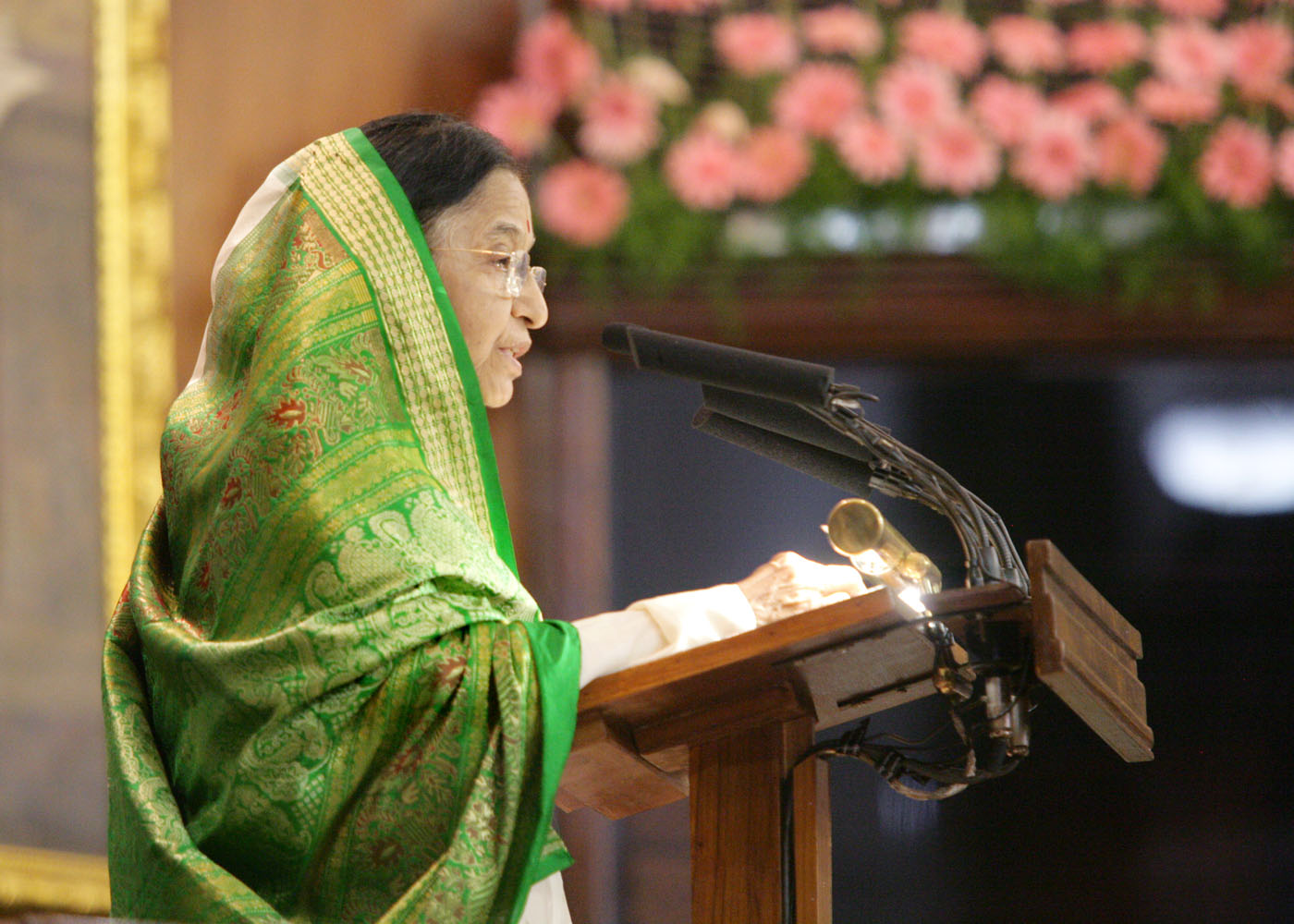Speech of the Hon'ble President of India, Smt. Pratibha Devisingh Patil, at the Function for the Presentation of the Outstanding Parliamentarian Awards for 2003, 2004, 2005 & 2006
New Delhi : 13.09.2007
 Hon'ble Vice-President,
Hon'ble Vice-President,
Hon'ble Prime Minister,
Hon'ble Speaker of the Lok Sabha,
Hon'ble Members of Parliament,
Ladies and Gentlemen,
I am delighted to participate in this function and to congratulate Shri Sharad Pawar, Smt. Sushma Swaraj, Shri P. Chidambaram and Shri Mani Shankar Aiyar for being awarded the Outstanding Parliamentarian Awards for the year 2003, 2004, 2005 and 2006 respectively. All of them have made exceptional contributions to the debates and proceedings of Parliament. Each one of them has had very distinguished careers as Ministers as well. They richly deserve the recognition that is being bestowed on them today.
In a democratic setup, Parliamentarians represent the will and the voice of the people. The people look up to their representatives for articulating their concerns and also meeting their aspirations. Parliamentarians are a link between the people and the Government. They carry the people's mandate to Parliament. To be faithful to the mandate of the electorate is, thus the primary responsibility of a Parliamentarian. Aptly describing the role of a Parliamentarian, Pandit Jawaharlal Nehru in his speech in the Lok Sabha on 28th March, 1957 said, and I quote "there can be no higher responsibility or greater privilege than to be a member of this sovereign body, which is responsible for the fate of the vast number of human beings who live in this country."
Parliament symbolizes a national purpose and it should lead to stability and progress of the nation. The citizens of this country must have full faith and trust in their elected representatives. Any doubt or lack of confidence in their minds about their representatives will undermine the very basis of democracy and unity of our country. Their trust can be reinforced only through statesmanship and dedicated service as people's representatives. For this purpose, let us keep away from political recriminations and work together towards building a strong nation ready to meet the challenges of this century. Thus, the elected representatives could fulfill their leadership role to help achieve a better life for every citizen of this country.
When change takes place it is natural that everyone asks the question as to how that change would impact their lives. Therefore, in today's rapidly changing world, it would be worthwhile for the Members of Parliament to examine how to meet the expectations of the people in a better manner. India's economy is growing at unprecedented high rates, but many sections of our society and many areas of our country are not seeing the fruits of this growth. It is important for Parliamentarians and society to ensure that benefits are equitably shared. Parliamentarians must look after the interests of the less privileged and the most vulnerable sections of society, who due to their very condition are the voiceless. It should be the duty of every Member of Parliament to stand in support of activities and policies that promote better health and education facilities as also better opportunities for all. Moreover, development policies should be implemented effectively and projects undertaken should be completed on schedule. People are impatient for growth and, therefore, timely delivery of development works is of utmost importance. Parliamentarians could monitor progress of development schemes through their respective Standing and Consultative Committees.
Parliamentarians also have an important duty to keep the people informed of the actions and activities of Parliament. This is, in a way, a rendering of accounts to the people. With advances in broadcast technology, the people are "viewing live" the proceedings of Parliament. It is on the basis of what people see, that they form an opinion about the functioning of Parliament and its contribution to policy formulation. The public is ever watchful of the way debates are held and of how the time of Parliament is utilized. I am reminded, in this context, of what Shri G.V. Mavalankar, the first Speaker of the Lok Sabha said, and I quote, " Each one of us has to remember, that howsoever great the difference in viewpoints and methods, we are all meeting here as representatives of the nation, for one common cause, which is, in the language of the Preamble to the Constitution - secure to all its citizens, justice, liberty, equality and fraternity."
India is the world's largest democracy and one of the most stable. Moreover, we have a long and an ancient tradition of democracy. Institutions like Sabhas and Samitis, which find a reference in the Rig Veda, provided a platform for debate and deliberations. At the village level, panchayats have been the age-old fora, where village communities took collective decisions. It was thus logical that the Founding Fathers of our Constitution chose a democratic system of governance for free India. Since our independence, our citizens have been exercising their choices through the ballot box. Parliament, being the national legislative body, also bears the responsibility of setting standards for State legislatures, local bodies and, indeed all elected bodies. How Parliament conducts itself is what other elected bodies feel is the right standard for them. It is incumbent on all Parliamentarians to uphold the highest traditions of democracy and the highest standards of Parliamentary functioning.
Once again, I would like to extend my congratulations to Shri Sharad Pawar, Smt. Sushma Swaraj, Shri P. Chidambaram and Shri Mani Shankar Aiyar and wish them many more years of continued service in public life.
Thank you.
JAI HIND !








